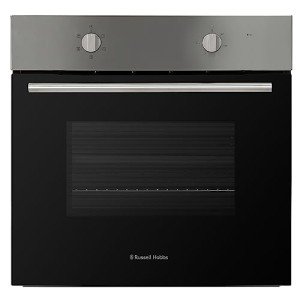Ten Built In Ovens That Really Make Your Life Better
페이지 정보

본문
The Comprehensive Guide to Built-In Ovens
Introduction
Built-in ovens are a staple in modern-day kitchens, combining elegance with performance. They provide a streamlined visual and effective cooking capabilities, making them a preferred option for homeowners and culinary lovers alike. This short article dives into the benefits of built-in ovens, their numerous types, crucial functions to consider, setup ideas, and maintenance suggestions, together with often asked questions.
Advantages of Built-In Ovens
Built-in ovens featured a range of advantages that add to their appeal. Here are some essential advantages:

- Space-Saving Design: Built-in ovens are developed to fit effortlessly into cabinetry, permitting a more organized and space-efficient kitchen layout.
- Visual Appeal: They offer a sleek and modern-day look that can improve the total design of the kitchen.
- Improved Functionality: Built-in ovens typically include sophisticated features and technologies that support different cooking techniques.
- Improved Cooking Experience: Many built-in models consist of self-cleaning functions, temperature level probes, and programmable settings, improving the cooking experience.
- Increased Property Value: A well-designed kitchen with built-in appliances can improve the value of a home.
Types of Built-In Ovens
built in ovens (read the full info here)-in ovens been available in a number of types, each created to fulfill different cooking choices and needs. Here are the main types:
| Type of Built-In Oven | Description |
|---|---|
| Single oven built in | A single, standalone oven for traditional baking and roasting. |
| Double Oven | Integrates two ovens in one unit, permitting for several meals to prepare at different temperatures. |
| Wall Oven | Set up in the wall, maximizing counter area, perfect for little cooking areas. |
| Stove | Uses fans to circulate hot air for even cooking, boosting the results of baked products. |
| Steam Oven | Uses steam for much healthier cooking alternatives, preserving nutrients in food. |
Key Features to Consider
When selecting a built-in oven, several functions can affect performance and usability. Here are some necessary features to keep in mind:
Cooking Modes
- Bake: Traditional baking with bottom heat.
- Broil: Top heat cooking suitable for browning and crisping.
- Convection: Built In ovens Circulates hot air for even cooking.
- Steam: Uses steam for much healthier cooking choices.
Size and Capacity
- Standard sizes normally range from 24 to 30 inches broad.
- Consider the internal capacity-- it can range from 3 to 6 cubic feet, enabling numerous meal sizes.
Controls and Smart Features
- Touchscreen Controls: Easy programs and adjustments.
- Smart Technology: Connectivity features allow for remote tracking and control through mobile phone applications.
Energy Efficiency
- Search for models with ENERGY STAR rankings, indicating lower energy usage.
Security Features
- Functions like vehicle shut-off and kid locks enhance safety during operation.
Setup Tips
Setting up a built-in oven might require professional assistance, but here are some general pointers to keep in mind:
- Choose the Right Location: Ensure there's adequate area in your cabinets for installation, remembering ventilation requirements.
- Electrical Requirements: Check that your kitchen's wiring meets the oven's power requirements, particularly for electric models.
- Level the Oven: Ensure the oven is level to promote even cooking.
- Protect the Oven: Attach it strongly to the cabinetry to prevent movement during usage.
Maintenance Advice
Routine upkeep is vital for the longevity and effectiveness of a built-in oven. Here's how to keep it in leading shape:
- Regular Cleaning: Wipe down surface areas after each use and carry out deep cleansing occasionally.
- Check Seals: Inspect door seals for wear and guarantee they preserve an airtight fit to enhance energy effectiveness.
- Adjust Temperature: If food regularly comes out overcooked or undercooked, think about recalibrating the oven's temperature settings.
- Professional Servicing: Schedule yearly check-ups with a trained professional to preserve ideal performance.
Frequently asked questions
What is the distinction in between a built-in oven and a freestanding oven?
Built-in ovens are designed to be installed within cabinetry, using a smooth appearance. In contrast, freestanding ovens are standalone units that usually come with their own cooktop.
Are built-in ovens more pricey than freestanding designs?
Generally, built-in ovens can be more expensive due to the included installation expenses and advanced functions. Nevertheless, rates differ widely based on brand name, size, and functionalities.
Can I install a built-in oven myself?
While it is possible to set up a built-in oven yourself, it is suggested to hire a professional to make sure proper installation, especially if modifications to cabinets or electrical work are required.
How frequently should I clean my built-in oven?
It is suggested to clean your built in oven-in oven frequently after heavy usage. For deeper cleanings, utilize the self-cleaning function if offered or regularly carry out manual cleansing to avoid accumulation.
Built-in ovens are an important addition to any kitchen, offering both visual appeal and advanced cooking abilities. By understanding their types, features, installation, and upkeep requirements, Built In Ovens house owners can make informed choices that improve their cooking experience and boost the general worth of their homes. As kitchen designs continue to progress, built in oven-in fitted ovens will likely remain a prominent option for modern homes.
- 이전글The Three Greatest Moments In Intergrated Electric Oven History 25.05.19
- 다음글What Freud Can Teach Us About Treadmills For Sale 25.05.19
댓글목록
등록된 댓글이 없습니다.


